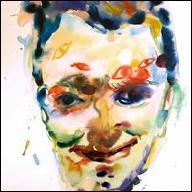As with Mads Brauer and Rasmus Stolberg -- his childhood friends and Efterklang compatriots -- Clausen was raised on the Danish island of Als, which sits just off the mainland in the Baltic Sea. The trio had played in bands since their teens, but a move to Copenhagen led to Efterklang's formation in 2000 and their subsequent use of an expansive lineup in a live setting. It was their second album -- 2007's Parades, mixed by Darren Allison -- which really started to turn heads, as well the accompanying EP, Under Giant Trees, which topped the charts in their homeland. Next, although Clausen moved to Berlin, he continued to be central to Efterklang's output. They made the jump to 4AD, who provided increased marketing clout for albums such as 2010's Magic Chairs, 2012's Piramida and 2019's Danish language set, Altid Sammen. Along the way, they branched off to deliver two groove-based records -- 2016's ii and 2017's 1982 -- in collaboration with percussionist Tatu Rönkkö, under the Liima moniker.
It was around this time that Clausen began flirting with using the name Captain Casablanca for solo endeavors. When he teamed up with cellist Gaspar Claus for a drone-like, mournful session which saw the light of day as Claus Clausen in November 2016, he used his given name for its release. That album was recorded two years earlier, in Lisbon, on what was intended to be a brief, one-month secondment to the Portuguese capital. By the time of the album's release, he'd moved his life to the city, making friends such as modular synth specialist André Gonçalves and visual artist Rui Suares Costa. The pair helped Clausen to set up his own studio in Almada, overlooking the River Tejo, and were often involved in his curated, low-key live events. Late 2019 saw the release of a three-track live session with Claus, recorded in St-Merry, Paris, and the following summer brought "Flyder" a loop-filled slice of R&B which Clausen recorded in collaboration with the Swedish artist sir Was.
Preceded by the late 2020 singles, "Used to Think" and "Ocean Wave," Better Way -- Clausen's debut album proper -- emerged early the following year on City Slang. Bubbling with Krautrock influences, and utilizing a very different sonic template, it exemplified his newfound freedom to work outside of the structures and confines that Efterklang's and Liima's teamwork dynamic had sometimes imposed. The year progressed, however, in a characteristically collaborative way with March bringing both an Efterklang single, "Postal," and a Clausen contribution to the Rone Friends LP alongside Canadian singer-songwriter Mélissa Laveaux. ~ James Wilkinson, Rovi












